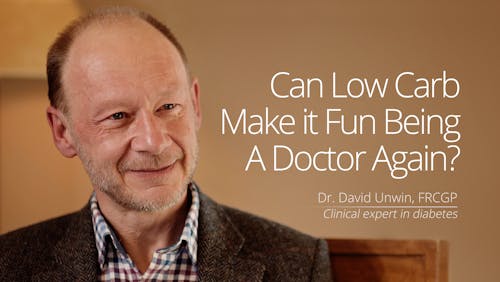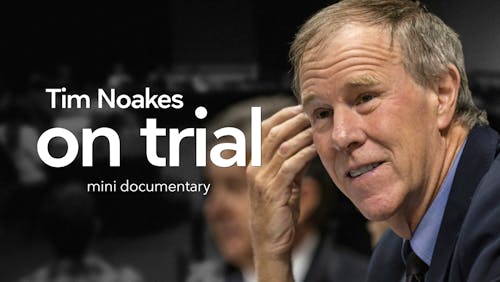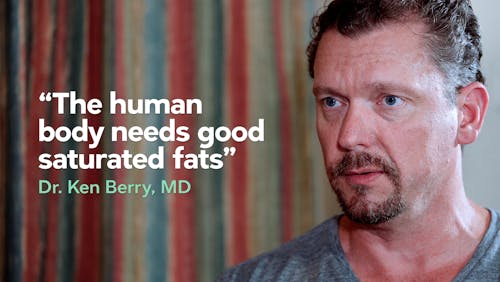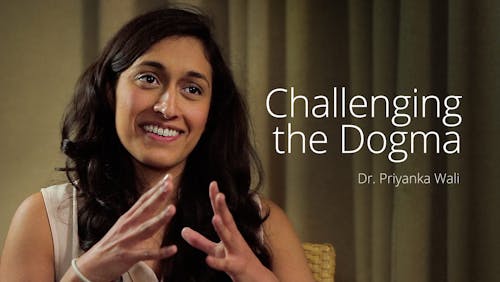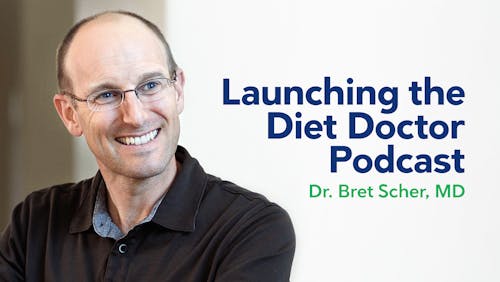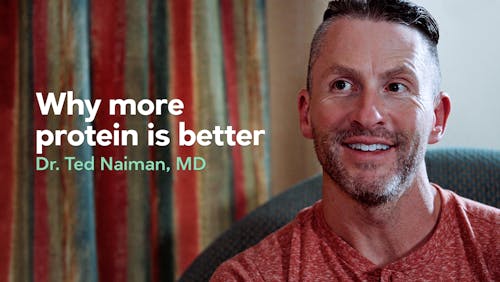The guide for doctors skeptical of low carb
Low-carb, high-fat (LCHF) nutrition saw a popular resurgence in 2018 as the ketogenic diet was the most “googled” diet of the year, and it retained that honor in 2019.
Of course, low-carb eating isn’t new. The whole foods that compose a low-carb diet are similar to what humans have been eating for thousands of years. The recent popularity of low-carb diets, however, has come with new scientific recognition of their health benefits.
Scientific studies of varying quality and duration show low-carb diets (generally less that 100 grams of carbohydrates per day) and ketogenic diets (less than 20-30 grams of carbohydrates per day) provide numerous health benefits including:
- Effective weight loss
- Treatment of diabetes
- Lowered blood pressure
- Treatment of fatty liver
- Increased high-density lipoprotein (HDL) cholesterol and reduced triglycerides
- And others
Unfortunately, no matter how popular they may be, and despite the numerous health benefits identified in the scientific literature, many people continue to think of low-carb and ketogenic diets as categorically unhealthy and dangerous.
Why is there such a disconnect? The answer may be due to a lack of familiarity with the science behind low-carb diets.
This guide explains the science and examines the misconceptions associated with low-carb diets. If you are a healthcare practitioner, we hope this guide will help you reconsider the risk-benefit balance for low-carb diets.
If you are not a healthcare practitioner, this guide may be able to prepare you for the most common concerns of healthcare providers. Your own experiences with a low-carb diet, plus this guide, can help your doctor better understand its potential benefits.
Below are evidence-based explanations that help sort fact from fiction:
Misconception 1: Nutritional ketosis is the same as ketoacidosis
Doctors likely never learned about nutritional ketosis in medical school or residency training. Instead, ketones are typically only mentioned as part of the life-threatening condition called ketoacidosis.
Ketoacidosis occurs mostly in people with type 1 diabetes and results from a severe deficiency of insulin. In this setting, blood glucose is typically quite high, while ketone levels rise above 7 mmol/L (and usually above 10), causing the blood to become more acidic and placing the individual at tremendous risk.
Ketoacidosis, however, is completely different from nutritional ketosis, where blood ketone levels usually range between 0.5-4 mmol/L and are accompanied by adequate insulin levels and normal blood glucose. Further, nutritional ketosis and ketoacidosis are physiologically very different, with the former having practically no health risk. The body is simply using mostly ketones for fuel, as opposed to mostly glucose. This basic physiological difference is important for every healthcare practitioner to understand.
Concerns about “ketosis” should not deter clinicians from recommending a low-carb or ketogenic lifestyle.
Misconception 2: Low-carb diets may deliver short term weight loss, but at the cost of increased risk of heart disease or death
As low-carb eating has increased in popularity, there has also been an increase in studies claiming low-carb diets increase the risk of dying prematurely, or increase the risk for heart disease. While news headlines tend to sensationalize these studies, a closer look shows the studies do not reach meaningful conclusions and should not be applied to well-formulated low-carb ways of eating.
For example, a 2013 review of 17 studies claimed there was a higher risk of death for those who ate less carbohydrate.
Generally speaking, the lowest intake of carbohydrate in these studies averaged around 40% of calories.
In addition, in most of the studies analyzed, there was no control for the quality of carbs. If a person is eating 200 grams of carbohydrates per day, there is plenty of room for refined and processed carbohydrate-containing foods. On a low-carb diet, carbohydrate calories come almost exclusively from vegetables and nuts, not from sugary, starchy, processed food.
These observational studies also suffer from healthy user bias.
Last, observational studies can only show associations; they cannot prove cause-effect relationships. While they can suggest a need for better studies to evaluate a possible association, the low hazard ratios (less than 2.0) found in these studies are more likely the result of statistical noise as opposed to reflecting a true association.
In conclusion, there is no moderate or strong evidence demonstrating that eating a whole-food, low-carb diet results in an increased risk of heart disease or early death.
Misconception 3: Low-carb diets that include more fat inevitably raise cholesterol
This turns out to not be true for the majority of individuals following a low-carb diet. Most studies show no significant change in low-density lipoprotein (LDL) cholesterol, but rather show the potentially beneficial effect of raising HDL, lowering triglycerides, and reducing the number of atherogenic small, dense LDL particles.
However, there is a small subset of people – termed hyper-responders – whose LDL increases significantly on a LCHF diet. The frequency of this effect is not precisely known, but it is estimated to occur in roughly 5-25% of those who follow a low-carb diet.
While the medical literature shows that elevated LDL is associated with increased cardiovascular risk in people following a low-fat or standard American diet, we don’t know if the same holds true for people eating a low-carb diet.
Why would the risk assessment be different? Well, for starters, even when the concentration of LDL-cholesterol increases on a low-carb diet, it tends to shift from being small and dense (thought to be more atherogenic) to large and less dense (thought to be less atherogenic).
You can read mor in our guide titled Is elevated LDL harmful?
Despite these favorable changes to the lipid profile and other metabolic improvements, we simply do not have outcome data to support or refute the hypothesis that higher LDL levels in low-carb eaters aren’t dangerous. Given the uncertainty and the fact that LDL has been found to correlate with risk in a multitude of studies, careful consideration should be given to whether any adjustments to diet or medication are indicated.
You can read more in our post about our official position on LDL cholesterol.


Cholesterol and low-carb diets
GuideLearn what cholesterol is, how your body uses it, why low-carb and keto diets may lead to a change in blood cholesterol levels, and whether you should be concerned if your cholesterol increases with a keto or low-carb lifestyle.
Misconception 4: The excessive amounts of protein consumed on a low-carb diet can cause kidney damage, osteoporosis, and heart disease
First, most low-carb diets are not high in protein. Most include about 20 to 30% of calories from protein, which can range from 70-150 grams of protein per day, well within normal recommended amounts of 10-35% of calories.
There is no evidence to suggest that protein intake at this level is harmful to people with normal or even moderately decreased kidney function.
In addition, protein consumption does not lead to compromised bone health.
Finally, there is no moderate or strong evidence linking protein intake with heart disease risk. As noted previously in the fat and heart disease section, data showing associations between protein intake and heart disease come from weak nutritional epidemiology studies that cannot show causal relationships. It is also worth noting that some such studies – like the Nurses’ Health Study – demonstrate an inverse relationship between protein intake and the risk of heart disease.
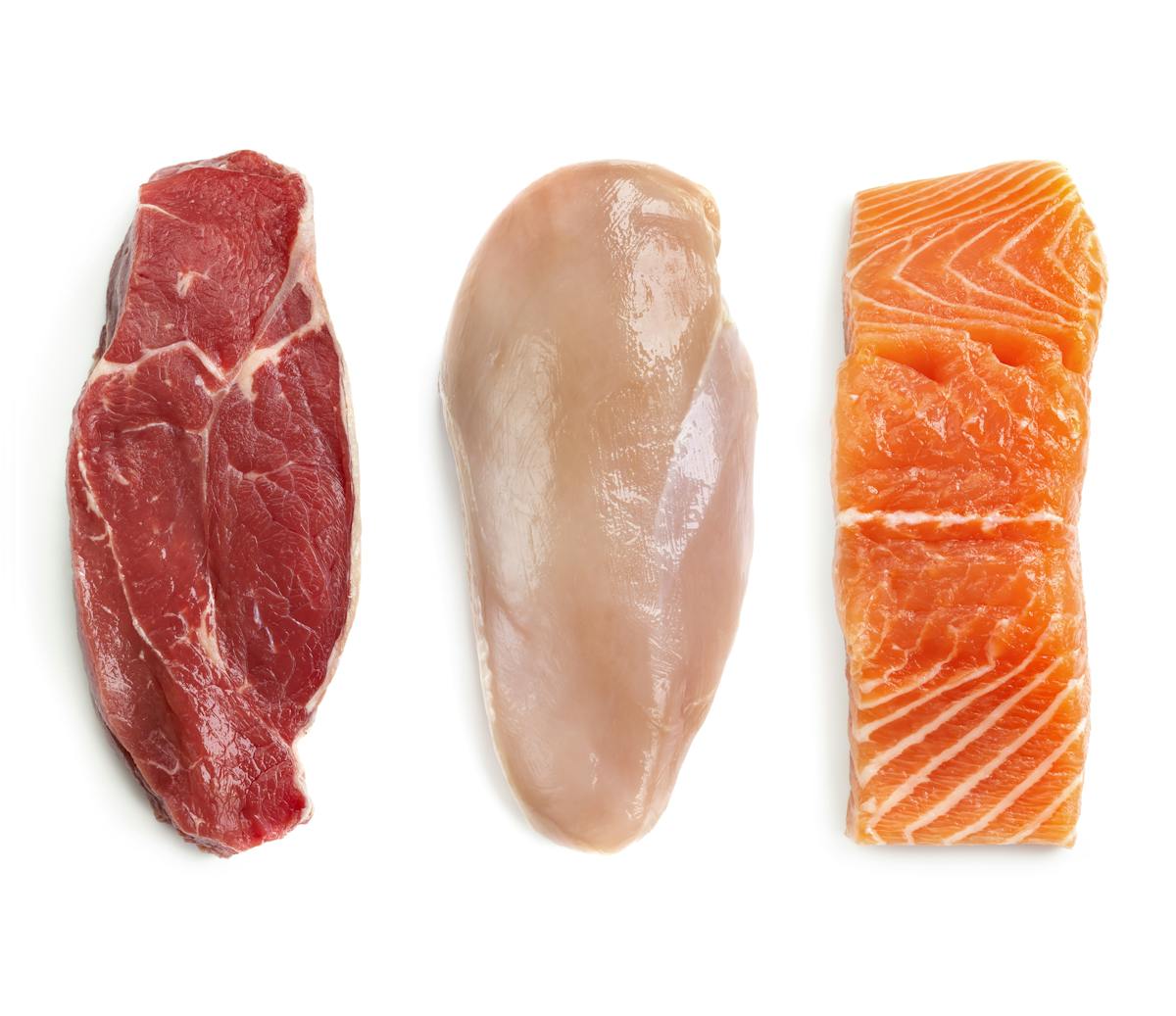

Protein on a low-carb or keto diet
Guide Along with fat and carbohydrates, protein is one of the three macronutrients (“macros”) found in food, and it plays unique and important roles in the body. Here’s a guide to everything you need to know about protein on a low-carb or keto lifestyle.
Misconception 5: The meat and fat allowed on a low-carb diet increase the risk of cancer
For a detailed evaluation of fat intake and cancer risk, please see our guides on diet and cancer and saturated fats. In brief, the data linking fat to cancer risk are inconsistent, incomplete, and unreliable.
The most consistent (albeit weak) associations between cancer risk and fat have been found over the years in observational studies looking at red meat and the risk of colorectal cancer.
For more on the science behind concerns about red meat and cancer, see our evidence based red meat guide.
Another question that has received much attention over the years is whether there is an association between fat intake and breast cancer. The Women’s Health Initiative (WHI), the largest randomized trial to address this issue, found no statistically significant reduction in breast cancer risk with a lower fat diet.


Diet and cancer: What we know and what we don’t
Guide In this guide, we’ll look at what we know — and what we don’t know — about food and cancer.
Misconception 6: Whole grains are a necessary part of a healthy diet
To begin with, there is no nutritional requirement for carbohydrates.
“The lower limit of dietary carbohydrate compatible with life apparently is zero, provided that adequate amounts of protein and fat are consumed.”
We can’t live without essential amino acids and essential fatty acids, but there is no such thing as an essential carbohydrate. Therefore, whole grains are clearly not a requirement for survival. But have they been proven to promote health?
Studies demonstrate that whole grains are associated with better health when compared to refined grains.
Evidence from the so-called Blue Zones, societies where individuals maintain good health into their 90s and 100s much more often than the general population, is also used to support the importance of whole grains. These communities frequently eat diets containing a high percentage of fiber and whole grains. We should recognize, however, that on average their caloric intake is two-thirds that of individuals in most industrialized nations, their food is predominantly locally grown and prepared at home, they don’t eat fast or processed foods, they are physically active their whole lives, and they have strong social connections.
In addition, Blue Zone findings aren’t based on studies of any kind; they are simply observations about populations of people whose lives are very different from those of people living in contemporary industrialized societies. We cannot accurately extrapolate findings from the Blue Zones to countries where only 12% of the population may be considered metabolically healthy.
As a healthcare provider, we recommend that you determine if your patient is eating a diet high in refined grains. If they are, then switching to whole grains would likely be beneficial.
For more information, see our complete guide on whole grains.
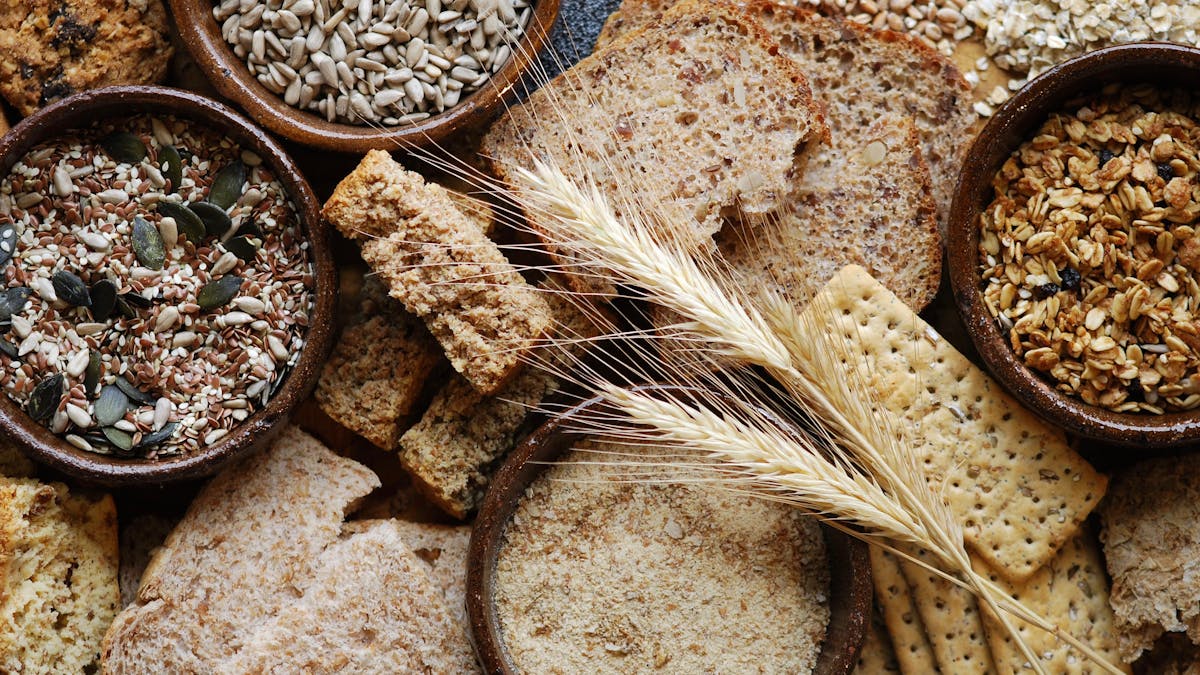

“Healthy” whole grains: What the evidence really shows
Guide Do whole grains live up to their reputation as a superfood? Let’s take a closer look at the very weak scientific evidence behind the claims made about their benefits.
Misconception 7: Low carb diets are deficient in fiber
Low-carb diets are not typically low in fiber. In fact, many low-carb and ketogenic diets contain nearly unrestricted amounts of above-ground vegetables such as broccoli, spinach, cauliflower, Brussels sprouts, green beans, bell peppers, zucchini, and more, all of which are high in fiber.
However, even if one chooses to eat a low-fiber, low-carb diet, there is no strong evidence that this is dangerous.
There is no question that higher-fiber, less-refined, less-processed carbohydrates are better than lower-fiber, more-processed, more-refined carbohydrates.
Misconception 8: Low carb diets are too restrictive
This statement is all in the eye of the beholder. After all, doctors may recommend a vegan diet without the concern that it is too restrictive, despite the fact that it eliminates all animal products.
Does eating practically all the veggies, meat, cheese, eggs, poultry, fish, nuts, and seeds you want sound restrictive? For some, it might sound like heaven. Seeing that as a restrictive diet is a matter of opinion.
The job of healthcare practitioners is to find the right approach for each individual. Some people may find a low-carbohydrate diet too restrictive, but we believe that they should be given the option to decide for themselves.
Misconception 9: It is too difficult to maintain long term
Let’s be honest: any meaningful lifestyle change has a low chance of being maintained. Smoking cessation, regular exercise programs, and even vegetarian diets have poor long-term compliance.
Despite the difficulty of long-term behavior change, some studies demonstrate excellent compliance with a ketogenic diet. The nonrandomized trial performed by Virta Health showed one- and two-year compliance rates of 83% and 74%.
When we emphasize the importance of behavior change and improve our logistical support mechanisms for facilitating that change, low-carb diets can play a meaningful role for many patients.
Misconception 10: Clinicians are required to follow guidelines that prescribe low-fat, low-calorie diets
The guidelines are changing. Low-carb diets are now recognized as a treatment option by the American Diabetes Association (ADA) and The European Association for the Study of Diabetes (EASD).
In addition, there is a growing body of evidence in peer-reviewed journals to support low-carb diets as a “standard of care” option. Dr. David Unwin in the UK has published reports of his successes with low-carb nutrition and has influenced the guidelines put out by the Royal College of General Practitioners.
Further, Virta Health has published their results using ketogenic diets to treat type 2 diabetes and sometimes induce remission.
Low-carb nutrition has clearly been shown to benefit people with diabetes and is recognized by the ADA as a viable option. Based on all available data, we believe that low-carb diets should also be considered for pre-diabetes, insulin resistance, and metabolic syndrome.
However, healthcare providers who are still hesitant can initiate a low-carb trial period of 6 months with a patient, closely following metabolic health markers such as waist circumference, blood pressure, HbA1c, HDL, triglycerides, LDL, fasting glucose, and fasting insulin. If these are mostly improving, this should be sufficient evidence to support the patient’s decision.
Misconception 11: A ketogenic diet will stunt a child’s growth
One of the first medical uses of a ketogenic diet was to help children with epilepsy control their seizures.
There are no data to suggest similar concerns are warranted with a real food, ketogenic diet. However, when a ketogenic diet is used in children, careful attention should be paid to monitoring growth rate and including a variety of foods to supply adequate nutrients. When done in this manner, there is no evidence to suggest any potential harm.
Misconception 12: A low-carb high-fat diet is bad for the environment
This topic is much more complicated that it appears on the surface and is beyond the scope of this guide. Please refer to our three-part series, “The green keto meat eater” or listen to our podcast interview with Professor Frank Mitloehner. In short, there is more than one way to be environmentally friendly, and avoiding animal-sourced foods isn’t necessarily the best.
Conclusion
As physicians and healthcare providers, we all want what is best for our patients. On that, we can all agree.
One of the best ways we can help our patients is by helping them find a lifestyle they can maintain that improves their overall health.
But, how can we pretend there is one best diet for everyone? We all have different preferences, varying degrees of metabolic health, and different goals. Thus, we may need different diets to help us achieve our goals.
At Diet Doctor, we support a low-carb style of eating because of its tremendous potential benefits and a rapidly growing body of evidence supporting those benefits. A low-carb diet may not be right for everyone, but it should certainly be considered an option.
Not only can this dietary intervention improve the health of patients, but — as many clinicians have found — our patients’ successes help us feel successful and satisfied in our work.
Low carb doctors









